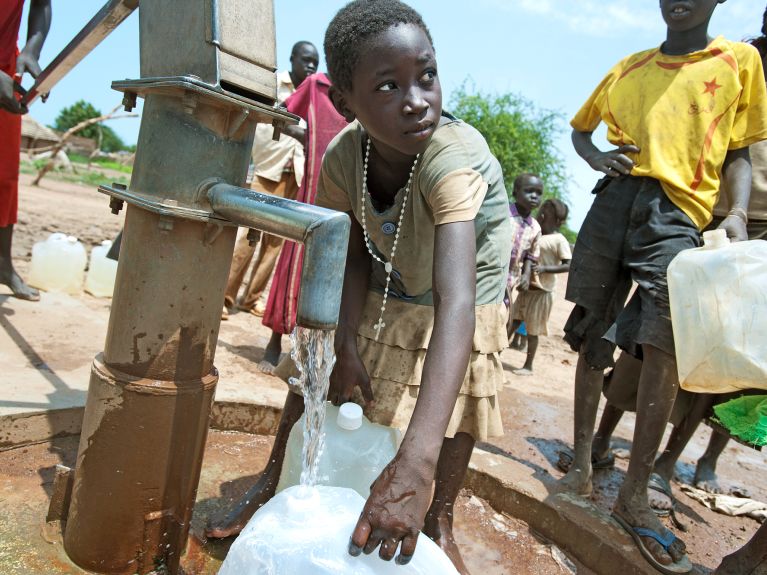Against thirst
This is how the German Water Partnership is committed to clean water worldwide.

Germany. Water is mankind’s most important resource. Germany uses its know-how and technology to support other countries worldwide in their water management. This gives many people access to clean drinking water. To this end, the German Water Partnership has built up a strong network: private and public companies as well as institutions from industry, science and research have joined forces in the initiative. Five federal ministries support the German Water Partnership: the Federal Foreign Office and the Ministries of the Environment, Research, Development Cooperation and Economics.
How does the three-pillar strategy against water scarcity work?
In the fight against global water scarcity, the German Water Partnership relies on a three-pillar principle of partnership between local and German water management companies, regional capacity building and resource-efficient water management technology. The projects range from the development of sustainable structures at a Georgian water utility to the solar-powered drinking water supply for a hospital in the Gambia.
Who are the members of the German Water Partnership?
More than 350 members from industry and research have joined forces in the German Water Partnership - including international corporations such as Siemens and Merck and scientific institutions such as the Institute for Urban Water Management of the Technical University of Braunschweig. The exchange between globally operating organizations is important: there are numerous cooperation agreements, for example with the German Society for International Cooperation (GIZ), the Russian Society for Water and the European Water Partnership.
In what countries does the German Water Partnership provide help?
In more than 80 countries around the globe. For example, the German Water Partnership maintains regional forums in North America and Africa. The KfW Development Bank and the German-African Business Association are part of the networks there. The initiative has also implemented many projects in the Arab world. In Egypt, for example, solar-powered deferrization and sterilizing plants provide safe drinking water in oases. And in the Zaatari refugee camp in Jordan a sanitary water supply network has been established.
